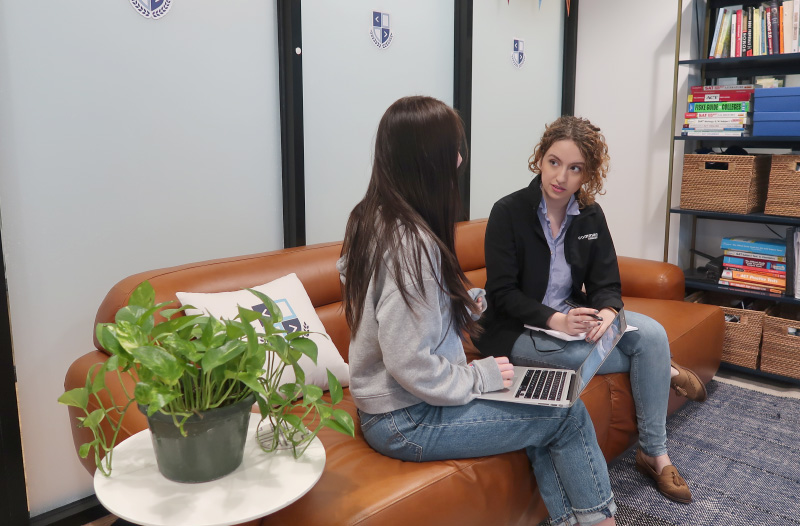There’s one thing teachers, admissions officers, parents, and students can all agree on: the college admissions landscape has changed a lot over the past few decades, even years. What used to be enough to all but guarantee one’s acceptance to Harvard now reads as standard amidst the impressive files of elite college hopefuls. This discrepancy between what was and what is causes a lot of intergenerational tension. Everyday there are high school seniors would rather write a dozen Common App essays than hear their parents chide them about the process one more time, and parents who are nearly at their wits’ end trying to cajole their children into more extracurriculars, extra tutoring sessions, and other gimmicks in the never-ending struggle to get ahead and guarantee their future.
The stress faced by these families can feel insurmountable at times, but there is a solution in a private college counselor, and more specifically a near-peer mentorship. Near-peer mentorship offers both students the guidance they need and parents the assurance of progress they want for their children. Instead of mentorship coming from the forty-something school guidance counselor who is sometimes less connected to the college application process, guidance from mentors in this model should actually feel to each student much more like wisdom from their older brother or sister who has recently been through the process and wants them to succeed.
Incredible results happen within this framework of near-peer mentorship. Frankly, the last thing a historically unmotivated student wants or needs is another adult who claims to have all the answers when they went through the college application progress decades ago. By pairing these students with mentors who are only a few years their senior, they often break out of their shells, and begin to identify passions that spur a dedication and commitment no one even knew they were capable of. Through the aid of a compassionate and patient mentor, these kids start nonprofits, create businesses, and make significant impacts in their schools and communities. Most notably, they become leaders and build the confidence, skills, and tools they need to be successful in college and beyond.
Applying to college signals an impending major life change for each and every student, and a shift in family dynamics as a result is inevitable. If the stress of the season is getting to you or to your child, consider the benefits of a mentor who can act as a friend as well as a teacher, encouraging students to live up to their potential in the college admissions process. It’s amazing to see what students can accomplish with the right support and motivation from a near-peer mentor.












